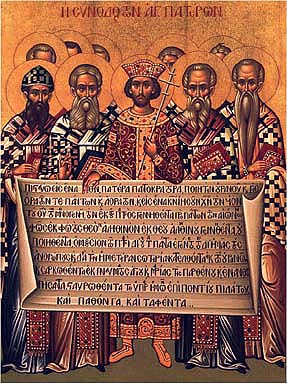
The church I grew up in was founded in 1934. My best friend growing up attended a church that was twenty years older. My next door neighbor attended a church with a denomination that was founded in 1609. A good friend from high school traces her denomination’s roots to 1521. Yet the Catholic Church, by its reckoning, is older than all of these combined and doubled.
Of course many Protestants — particularly many here in the south — hold that Catholicism was a perversion of the original church, and thus the founding of the Church cannot be traced by to the first century. Yet even if we take the official start of the Catholic Church as late as 313, with Constantine’s Edict of Milan, it still has 1,200+ years’ experience over the first major Protestant division. (I’m leaving aside the Great Schism of 1054, which led to the division of the Orthodox and Catholic Churches. By and large, though, the theologies of the Orthodox Church and the Catholic Church have a great deal in common.)
That’s a lot of time for doctrinal evolution.
What’s most amazing is that during that time, the core Catholic theology has never come into question. The papacy might have descended into immoral chaos, the bureaucracy of the church might have condoned, encouraged, and even committed awful acts, and corruption might have been rampant, but the doctrines remained steady. What we find in the early Church Fathers is eerily similar to the theology we see in the Catholic Church — a fact that has led to several notable Protestant-to-Catholic conversions during the last few decades.
What does it take for an institution to last so many centuries?